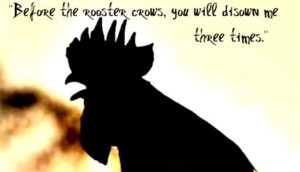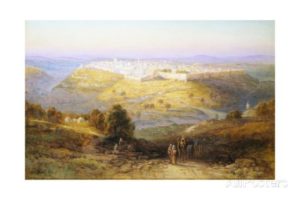Create in me O God a pure heart
And grant a right spirit within me.
Cast me not away from your presence
And turn not your holy spirit from me
Psalm 51:10-11
The Hebrew word for “create”—Ba ra’—is reserved for God as something only he can do. It is not mere making, or rearranging elements that already exist, but bringing about something entirely new and wonderful. This is what he did “in the beginning.”
Now I am reveling new things to you, things hidden and unknown
created just now, this very moment,
of which you have heard nothing until now
so you cannot say, “Oh yes, I knew all this.”
Isaiah 48:7 (New Jerusalem Bible)
In today’s political speech, when one side makes a bold proposal or pointed accusation, the other side often dismisses it with the charge of “nothing new,” as if novelty alone drove truth or relevance. It’s a meaningless rebuttal, especially if the original point was never addressed when it was new. But the terminology reveals something about all of us; we’re always growing weary even while looking for renewal. We’ve been too many times around this track. Sin promises the new and exciting but (eventually, at least) leaves us exhausted and miserable. Sin makes us old.

In our marriages, our compromises, our expectations and disappointments—disillusion starts with sameness. When will this tired cycle stop? When will we make some real progress? The problems are so obvious—why can’t we fix them? How many times must we go around this same old track?
In the presence of all your people I shall work such wonders as have never been worked in my land or in any nation. All the people around you will see what the LORD can do, for what I shall do through you shall be awe-inspiring.
Exodus 34:10
The Old Testament tells of great revivals, massive turning points in history, when a sense of purpose and power swept through the people like a burning wind, setting off spectacular miracles like fireworks (see the Exodus, the conquest of Canaan, the beginnings of the monarchy and the prophetic era). The fires quickly dimmed and the winds slacked off, because that’s how we are. We get old. Sin makes us old. Revivals and mini-revivals fail to stick (see the book of Judges). By the time Malachi appears, the people are set in their ways, petty and argumentative, meeting the LORD’s passionate accusations with a shrug: “Nothing new here.”
I shall give you a new heart, and put a new spirit in you; I shall remove the heart of stone from your bodies and give you a heart of flesh instead . . .
Ezekiel 36:25
Our hearts feel old and tired, even now. If you’ve seen too many revivals and Next Big Things and This Changes Everythings—where after a few years Everything slides back to where it was before—it’s easy to become disillusioned. But we must not.
In South Korea an obscure pastor is rescuing unwanted babies through the medium of a box. In central Texas a former abortion nurse is pulling souls out of that miserable industry. In the Middle East young men see visions and old men dream dreams. In Africa, souls undergoing persecution find their faith renewed, contrary to all human reason. In the well-worn tracks of human failure, bright footprints.
Texas a former abortion nurse is pulling souls out of that miserable industry. In the Middle East young men see visions and old men dream dreams. In Africa, souls undergoing persecution find their faith renewed, contrary to all human reason. In the well-worn tracks of human failure, bright footprints.
Behold, I am making all things new. Rev. 21:5
Happy New Year—for real!




 He’ll need a nest egg to get back home, start a new life. As for the others, well, they’ll have to look out for themselves. They’ll survive. What he’s doing is best for them, too. Really, best for everyone, even the whole nation. Even, perhaps, the Master himself.
He’ll need a nest egg to get back home, start a new life. As for the others, well, they’ll have to look out for themselves. They’ll survive. What he’s doing is best for them, too. Really, best for everyone, even the whole nation. Even, perhaps, the Master himself.

 each other gravely in the marketplace. They love to score the head tables at banquets and front seats in the synagogue. They make sure to settle estates in their favor, leaving widows the short end, and then they spout long eloquent prayers in the temple court for our edification. Their reward is waiting—only it’s not a reward.”
each other gravely in the marketplace. They love to score the head tables at banquets and front seats in the synagogue. They make sure to settle estates in their favor, leaving widows the short end, and then they spout long eloquent prayers in the temple court for our edification. Their reward is waiting—only it’s not a reward.”
